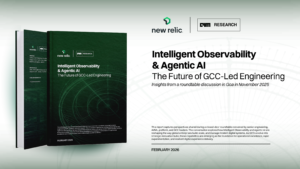With the exponential growth of data volumes and the complexity of data sources, organizations are increasingly reliant on modern data tools and platforms to harness insights, drive decision-making, and maintain a competitive edge. However, the adoption and efficient utilization of these technologies come with their own set of challenges. A recent research report, published in collaboration between AIM Research and Alteryx, delves into these challenges, offering a comprehensive analysis and strategic recommendations for enterprises navigating the modern data landscape.
Key Findings
The research, encompassing a survey of 68 organizations, provides a nuanced understanding of how enterprises interact with modern data tools and platforms. It highlights the maturity of data management practices, the prevalent use of cloud-based infrastructures, and the push towards data democratization across sectors. Notably, a majority of organizations are sharing data across departments, underscoring the shift towards collaborative and integrated data practices.
Despite the advancements, organizations face significant hurdles. Technical challenges, such as integrating disparate data sources and managing query performance, stand out as critical obstacles. Additionally, non-technical issues like departmental silos and budget constraints further complicate the landscape. Security concerns, particularly compliance with regulations and access control, are paramount, reflecting the critical nature of data security in today’s digital environment.
Future Strategy and Investment Priorities
Looking forward, the survey indicates a strategic shift towards seeking integrated solutions that enhance data quality, governance, and incorporate advanced analytics capabilities. There’s a clear recognition of the need to address both the technical and strategic aspects of data management to leverage the full potential of modern data tools and platforms.
Recommendations for Overcoming Challenges
Embrace Data Democratization
Organizations are encouraged to foster a culture of data democratization, enabling access to data and analytics tools across various departments. This approach can empower a broader base of employees to engage in data-driven decision-making, leveraging self-service analytics tools.
Invest in Integration Solutions
To tackle the primary technical challenge of data integration, investing in middleware or platforms that facilitate seamless connectivity between diverse data sources is crucial. This can alleviate integration headaches and streamline data workflows.
Prioritize Data Quality and Governance
Improving data quality and establishing comprehensive data governance frameworks are imperative. Organizations should develop clear policies on data usage, quality control, and compliance to ensure data integrity and regulatory adherence.
Enhance Data Security Measures
Given the paramount importance of data security, enhancing measures around compliance, access control, and encryption is vital. Regularly updating security protocols can help mitigate the risks associated with emerging cyber threats.
Transition to Modern Data Stacks
For those still tethered to legacy systems, a strategic transition to modern data stacks, including cloud-based solutions and advanced data processing technologies, is essential. This transition supports scalability, flexibility, and enhanced analytics capabilities.
Invest in Talent and Training
Cultivating a workforce proficient in modern data analytics tools is fundamental. Ongoing training and development initiatives can keep the team abreast of the latest technologies and methodologies in data analysis.
Leverage Cloud Computing and Advanced Analytics
Expanding the use of cloud computing for data storage and processing, coupled with the integration of machine learning and advanced analytics, can unlock deeper insights and predictive analytics capabilities.
Overcome Departmental Silos
Strategies to dismantle departmental silos are crucial for fostering an integrated approach to data. Promoting cross-departmental collaboration can enhance data sharing and utilization across the enterprise.
Customize Data Solutions
While comprehensive solutions are sought, customization options should not be overlooked. Tailoring data tools and platforms to fit specific organizational needs ensures that these technologies align well with existing processes and objectives.
Monitor and Adapt to Evolving Needs
Continuous monitoring of the effectiveness of data tools and an adaptive approach to strategy are necessary to stay ahead. Keeping pace with technological advancements and industry trends is critical for maintaining a competitive advantage.
Conclusion
The collaboration between AIM Research and Alteryx sheds light on the multifaceted challenges and strategic considerations facing enterprises in the realm of modern data tools and platforms. By addressing these challenges head-on and adopting a holistic approach to data management, organizations can not only navigate the complexities of the modern data landscape but also harness its full potential to drive innovation, efficiency, and competitive advantage in the digital era.
Download the Complete Report






